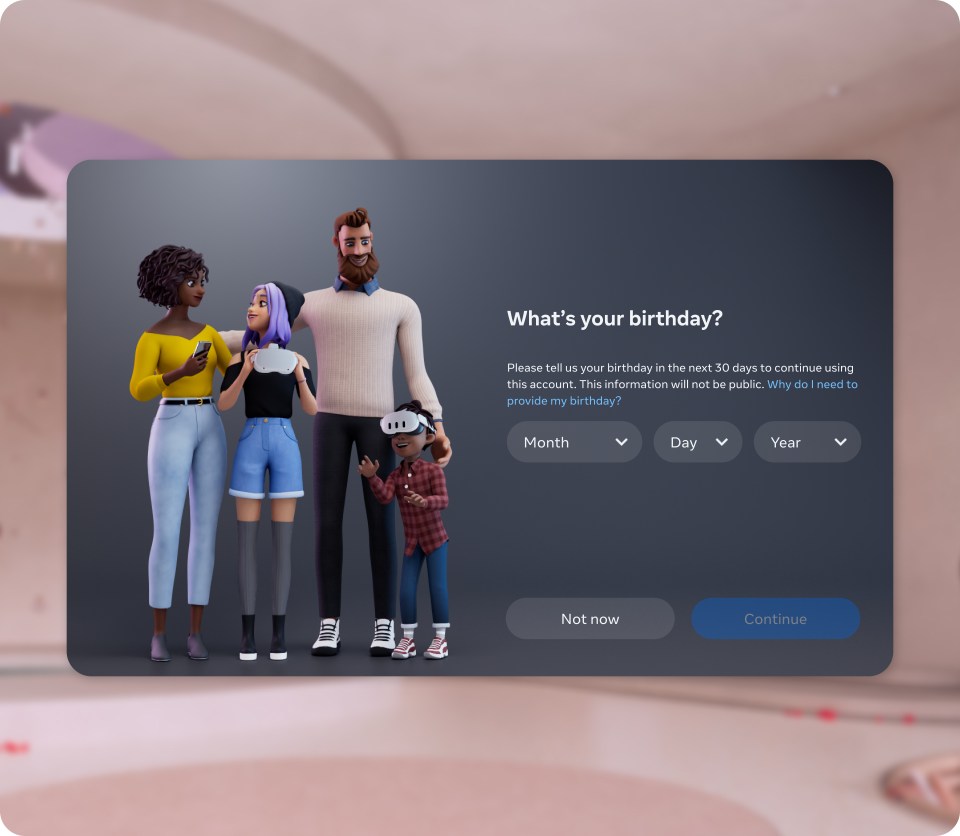
During the congressional online safety hearing in January, Meta CEO Mark Zuckerberg argued that mobile app store providers like Apple and Google should be the ones to implement parental controls for social media. Now, it appears Meta is using its Quest VR store to demonstrate how it thinks devices with app stores should approach online age verification.
Meta announced today that it’s prompting Quest 2 and 3 users to confirm their age by reentering their birthdays so it can provide the “right experience, settings, and protections for teens and preteens,” the company explained. For instance, teenagers aged 13 to 17 will have their profile automatically set to private, and guardians can use parental supervision tools to tailor their teens’ experiences. Meanwhile, parents are required to set up an account for preteens aged 10 to 12. In that case, parents can control which apps the preteen can download.

Image Credits: Meta
Users have a 30-day window to confirm their age. If they fail to do so within this period, their account will be temporarily blocked until they provide their birthdate. Since it’s easy to lie about someone’s age when entering only a birthdate, Meta says it’ll require people who accidentally enter a wrong birthdate to verify with an ID or credit card.
Meta has previously told developers that, starting in March 2024, it will require them to identify their app’s intended age group (preteens, teens, or adults). It also announced the launch of its user age group APIs, which officially launched last month. The APIs allow developers to report to Meta if a user is too young to use their app.
Meta first added parental supervision tools to its VR headset in 2022. The company released parent-managed accounts for preteens last year.
techcrunch.com




